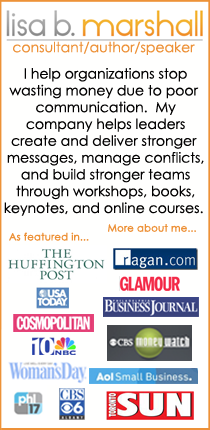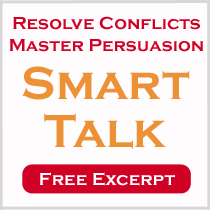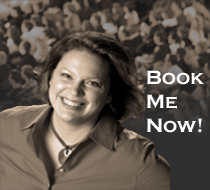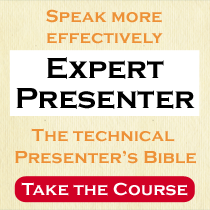Conclusions and closers — How to end a talk
The day after Thanksgiving, my husband and I decided to go out on an “date” — our first evening out past 9:00 pm since the birth of our 3 1/2 year old identical twins. (Yep, I know, it’s a sad statement about our social life, but unfortunately it’s true.) We chose to visit our local Comedy Cabaret to decompress–to get away from work.
I was really looking forward to releasing endorphins and reducing my stress through laughter–especially after my early morning (4:30 AM) “Black Friday” skirmishes. I didn’t think it would be possible to be thinking about work while enjoying local comedians, but then, out of the mouth of the very first comedian, came that dreaded phrase –“Thank-you and that’s my time”. Immediately my mind flashed to the many scientific presentations that I have seen when the speaker ends with “Thank-you. Are there any questions?”
Comedians, at least have an excuse for ending this way. Comedic routines lack a rigid organization structure. Comedians are told to put their second funniest joke at the beginning, while saving their “funniest” joke for the end. However, a good comedian understands that audiences react differently to jokes and therefore prepares a few “best” jokes. During each performance, he then chooses which joke to end with based on the audience response. The idea is to finish with a big laugh and then then say “Thank-you, that’s my time” as the signal indicating that the set is complete (and it’s time to clap for the performer).
A good scientific presenter also uses signals to indicate that the presentation has come to end. The first most obvious signal is the conclusion. When the speaker reviews the main ideas in summary form, this indicates that the presentation is coming to an end. To be effective as a signal, it’s important to remember that the conclusion needs to be proportional (about 10-15% of the talk)–the longer the talk, the longer the conclusion needs to be. If the conclusion is missing or too short (common errors in scientific presentations) the conclusion is an ineffective signal.
Many presenters end after a short summary, however, an excellent presenter uses one additional final signal to indicate that their presentation is complete. Strong communicators, follow a solid conclusion with a very short “closer”. For an informative speech, the closer is called a “residual message”, while a persuasive speech uses a “call to action”. The idea of the residual message is to make a brief, broader statement that sums up THE main message you want your audience to remember and hints at the broader speech theme. A call to action, is a statement that specifically tells the audience what you want them to do. Closers need to be short, efficient, and memorable. Weather it’s a residual message or call to action, the main purpose of the closer is to SIGNAL that you have come to the end of the presentation. A well-done “closer” will have your audience automatically clapping BEFORE you utter “Thank-you are there any questions?”
I’ve been doing this long enough to know that some of you are thinking and wondering…but what’s wrong with asking if there are any questions? To be clear, it’s not the phrase that I object to, it’s when and how this phrase is used. If it is used as the ONLY signal that the talk in ending–INSTEAD of using a strong conclusion and closer, then it is not appropriate. But if you have already finished with a strong conclusion and closer–then, of course, you can ask if there any questions–that is AFTER the appreciative clapping has quieted down!
The night of our “date” I noticed that the most experienced comedian (the headliner) didn’t resort to the phrase and used a more creative way to signal the end of his set. His last joke circled back to the very beginning of his routine. I had to laugh–not only because the joke was funny, but also because that is exactly the technique that I advocate for scientific presenters. Returning back to opening, coming “full circle” so to speak, is a common cinematic technique for signaling the end has come. It works equally well for movies, presentations and comedians.
So much for a night out to forget about work!











There are 2 comments .